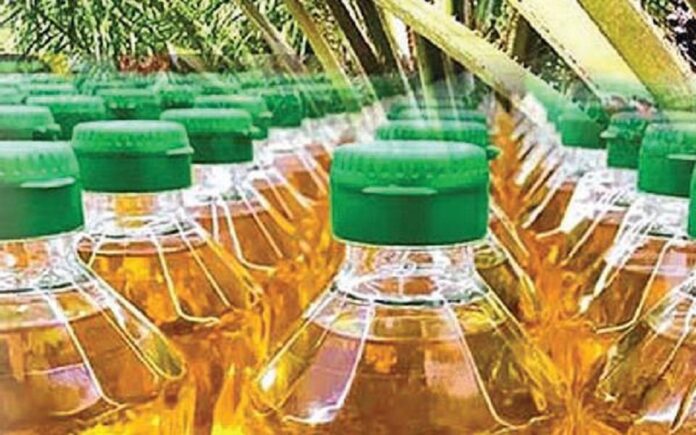The Sri Lankan government has launched an investigation into companies accused of evading taxes exceeding Rs. 5.8 billion on coconut oil imports. This was confirmed by Prime Minister Dr. Harini Amarasuriya in response to a parliamentary question raised by Samagi Jana Balawegaya (SJB) MP S.M. Marikkar. He alleged that a fraudulent tax evasion scheme had been operating since January 1, 2024, affecting the coconut oil import sector.
According to Marikkar, between January and October 2024, over 38.8 million kilograms of unrefined coconut oil were imported. However, it remains unclear whether these stocks were refined and released to the market. He pointed out that taxes on these imports had not yet been paid. Additionally, he highlighted imports of 1.7 million kilograms in November and 1.48 million kilograms in December, questioning the government’s policies on taxation and regulation of coconut oil imports.
He further accused the previous administration, under former President Ranil Wickremesinghe, of enabling tax exemptions. He cited a request from a company for tax relief, which Wickremesinghe, in his capacity as Finance Minister, forwarded to the Department of State Fiscal Policy (DSFP) and the Inland Revenue Department (IRD) in July 2024. Marikkar called for urgent action to recover the Rs. 5.8 billion owed in taxes.
Allegations of Market Manipulation and Tax Evasion
The issue has sparked widespread controversy, with many comparing it to previous large-scale tax scams, such as the infamous ‘sugar tax fraud.’ The All Ceylon Traditional Coconut Oil Manufacturers Association accused several major importers of hoarding up to 50,000 tonnes of coconut oil before a tax increase, allegedly manipulating prices and hurting smaller refiners and consumers.
Health and Regulatory Concerns
Under Sri Lanka’s revised VAT law, effective January 1, 2024, unrefined coconut oil that is locally refined and sold is subject to an 18% VAT and a 2.5% Social Security Tax. However, investigations revealed that three major companies, operating under six different names, imported 38.8 million kilograms of crude coconut oil between January and October 2024. While some importers complied with regulations, others bypassed refining processes entirely, releasing unsafe, unprocessed crude coconut oil into the market.
This not only led to significant tax losses but also posed health risks to consumers, as unrefined coconut oil is unsuitable for direct consumption. The Inland Revenue Department raided several companies, but reports suggest that at least one company sought intervention from the Finance Ministry through former President Wickremesinghe’s office. Correspondence indicated that the tax liabilities of these companies were under ‘special consideration,’ raising concerns about possible collusion between officials and importers.
Impact on the Coconut Oil Industry and Economy
The ambiguity surrounding VAT enforcement has disrupted the domestic coconut oil industry. Approximately 40 small-scale coconut oil refiners were forced to shut down operations due to unfair competition, while tax-evading importers continued to dominate the market.
Additionally, global coconut oil prices surged from $1,320 to $1,880 per tonne due to geopolitical factors like the Russia-Ukraine war. In Sri Lanka, wholesale prices rose to Rs. 700 per kilogram, with retail prices climbing to Rs. 1,350 per liter. The country imports around 6,000 tonnes of coconut oil monthly, costing $3.5 million in foreign exchange reserves. If left unchecked, this could amount to a $25 million drain in just six months, worsening Sri Lanka’s economic crisis.
Policy Recommendations for Stability
Experts have proposed several measures to mitigate these financial and economic risks:
Easing Crude Palm Oil Imports: Temporarily lifting restrictions on crude palm oil imports could reduce costs and stabilize coconut oil prices, potentially saving up to $50 million annually.
Reviving Domestic Palm Oil Cultivation: Restarting palm oil cultivation, which was halted under former President Gotabaya Rajapaksa, could improve long-term self-sufficiency.
Strict Tax Compliance: The Inland Revenue Department must ensure that all companies pay VAT and Social Security Taxes without exemptions to recover lost revenue and restore market fairness.
